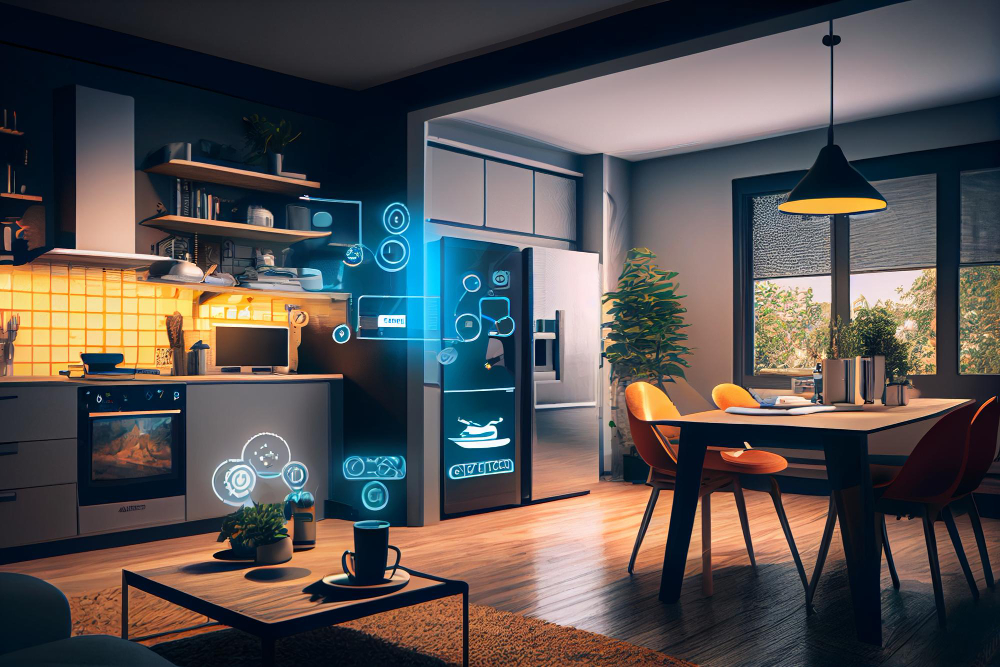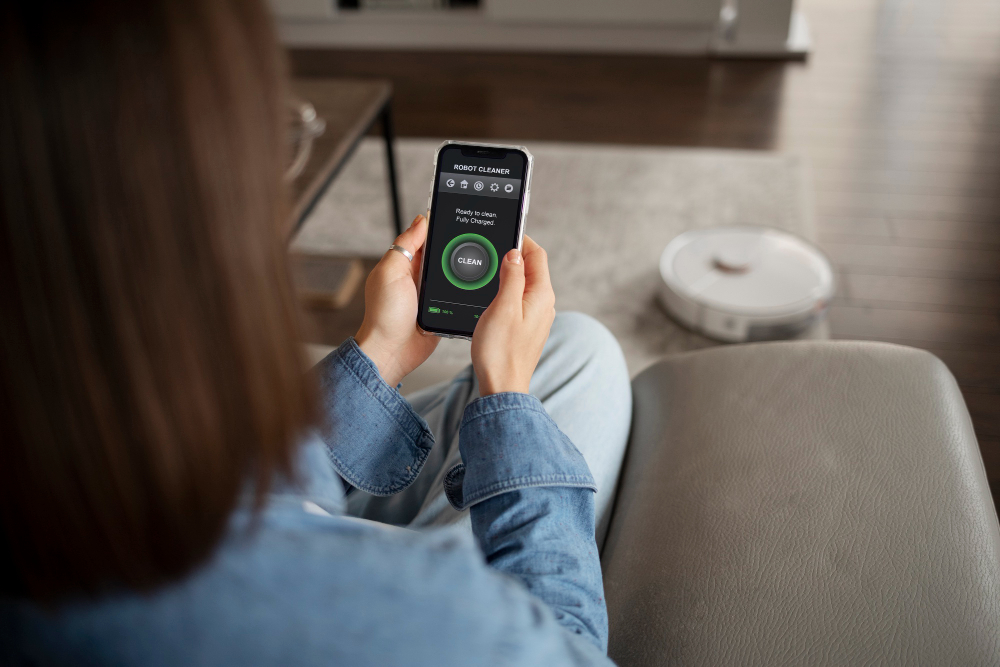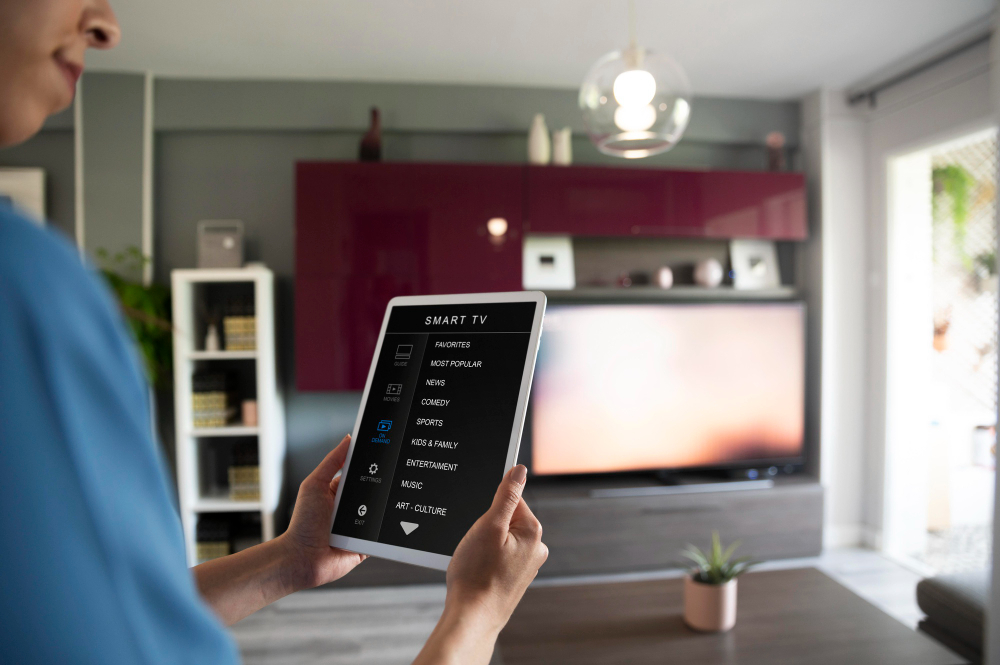Smart Home Vs. Regular Home: Is It Worth The Extra Cost?

Is it worth it to buy a smart home? That’s a question you’re going to want to ask yourself before you make your purchase. Smart home systems are becoming more common, but they can be expensive. If you’re not sure whether or not you’d like to invest in the technology and convenience of having a smart home, this post will help.
What is a Smart Home?
A smart home is a residence that uses technology to improve its homeowners’ quality of life. The most common types of smart home appliances and devices are thermostats, lights, and alarms, but there are many more types available.
Smart devices are often connected to the internet and have sensors that allow them to collect data about their surroundings. They’re also able to communicate with other smart devices in order to provide information or take action based on what they’re sensing.
Smart homes can be controlled remotely through apps on a mobile phone or computer. For example, you can turn off the lights in your house if you forgot to do so or even set them on a schedule so they automatically turn off after midnight every night.
Also, you can use your smartphone to turn on the air conditioning before you get home from work. Smart homes are also very energy efficient, which means they will save you money on your utility bills. These devices can learn your habits over time and adjust accordingly.
Smart Home Technology and Control
Smart home technology is an exciting development that allows homeowners to control their home’s functions from anywhere. Instead of going around your home and turning on or off your light switches, you can do this with a simple voice command or smartphone app.
You can also set up automated tasks within your smart home system so that lights turn on at certain times of day, doors lock when everyone leaves, and music plays throughout your house when you’re entertaining guests.
Smart Home Hubs
Smart home hubs are the brains behind all these functions; they receive signals from sensors around your house (such as motion detectors) and send out commands based on those signals. The most popular hub and smart home technology system is Amazon Alexa; if you have an Amazon Echo device in your home, then it acts as a hub too! There are other options available including Google Assistant, Apple HomeKit (which only works with iOS devices), and Samsung SmartThings Hub/SmartThings Link.

Smart Devices for Security
Smart home devices can be used for security. For example, smart doorbells are a great way to see who’s at your front door without having to look through the peephole or open the door. They’ll even let you talk back through an intercom so that you can tell them what time they can come over and how long they should stay. Smart locks allow you to remotely lock or unlock doors from anywhere. And smart security cameras monitor everything from motion detection all the way up through facial recognition technology.
Energy-efficiency of Smart Homes
A smart system can save you money on energy. Smart thermostats, for example, are a great way to cut down on air conditioning costs. Some Thermostat learns your routines and sets themselves accordingly–so if you leave for work, it will automatically turn off the aircon when it senses that no one is home. You can also manually adjust the temperature from anywhere using an app on your phone or tablet.
Smart lights can be programmed to turn off when you leave or go to bed; smart appliances like refrigerators will run during off-peak hours; and smart plugs allow appliances like coffee makers or televisions (which use more power than anything else) access only when needed by someone actually using them.
Smart Home Devices for Entertainment
Smart home devices are great for entertainment as well. Smart lights can be set to change colors at certain times of day or night, depending on the mood you want to create. Smart speakers are excellent for listening to music, reading audiobooks and podcasts, and even controlling your smart home devices from anywhere in the house or outside.
Smart TVs are becoming increasingly popular as well because many people prefer to use these devices over their computers or mobile devices when watching videos online. This is especially true if they’re looking for something specific like sports highlights or movie trailers–the large screen makes it easier than ever before,
The convenience of Smart Living
Smart homes are convenient because they make everyday tasks easier. You can control your home from anywhere, saving time and money by not having to drive all the way home just to turn off the lights or adjust the temperature. Smart technology also helps you get help from your home, such as when your phone rings, while you’re out of town and a smart speaker, answers it for you or when someone breaks into their house while they’re away.
Smart technology also gives people access to information about their homes so that they can make better decisions about how much energy they use or whether it’s worth upgrading their appliances before buying one new one instead of two old ones that won’t last as long either way.

Smart Homes Are Great for New Families
If you’re a new family, a smart home can help with baby monitoring and home security. Some Home Security Camera not only allows you to see what’s happening in your house from anywhere at any time, but it also has an intercom feature that allows you to talk remotely with whoever is in the room with the camera. This is especially useful for those times when an alert goes off and there isn’t anyone around to investigate it immediately. You can keep an eye on them from work or on vacation without having to worry about whether they’re safe and sound or not.
The same goes for energy efficiency; many newer homes are built using sustainable materials such as bamboo flooring or cork walls which require less maintenance than traditional hardwoods or drywall. These types of materials will help save money over time since they require less upkeep due to their durability and natural resistance against damage caused by moisture/water infiltration into cracks between boards.
It depends on how much you value the things that smart homes can do for you.
While smart homes can offer a lot of great benefits, they’re not for everyone. If you have the money and time to spend at home, then a smart home might be worth looking into. However, if your life is busy and chaotic with little time for yourself in the evenings or weekends (or even during the week), then perhaps it’s best to stick with regular old traditional living instead of jumping into this new technology trend all at once.
Smart homes are great for those who want convenience and energy efficiency from their living space but don’t necessarily have much experience with high-tech devices because these devices are designed specifically for ease of use. They work together seamlessly so that everything works according to plan without any input required from the users themselves.
With all the benefits of a smart home, it’s no wonder that more and more people are choosing to invest in this type of technology. However, not everyone will benefit from investing in smart devices.
Looking for homes with smart features? Browse here at AllProperties!




